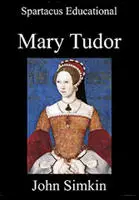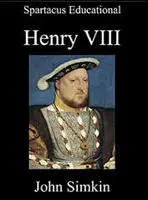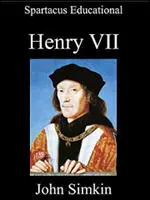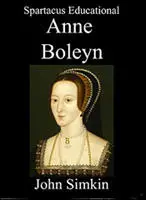Tudor Parliaments
In Tudor times most important decisions concerning government were made by the king or queen and a small group of advisers called the Privy Council. However, before these decisions became law, they had to be passed by Parliament.
Parliament was the House of Lords and the House of Commons. The House of Lords was made up of about sixty Bishops, Dukes, Earls and Barons. It was unusual for members of the House of Lords to criticise the king's policies. If they did so, they were in danger of being stripped of their titles.
Members of the House of Commons were more independent as they were sometimes elected by the people who lived in the area they represented. However, very few people had the vote and in many cases the largest landowner in the area decided who went to Parliament.
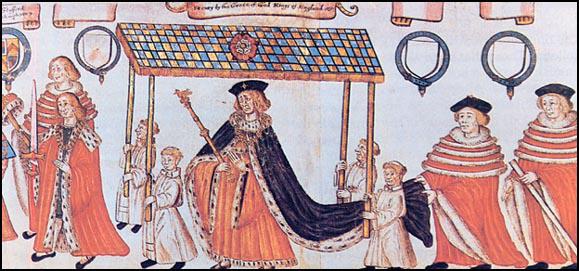
Henry VIII was in favour of holding regular Parliaments. When Henry was in conflict with the Pope in Rome, he claimed that the votes taken in Parliament showed he enjoyed the support of the English people.
When Mary Tudor became queen she tried very hard to make sure she had a pro-Catholic House of Commons. Mary sent out instructions to the sheriffs (they organised the elections) pointing out who she wanted to be elected.
| Spartacus E-Books (Price £0.99 / $1.50) | ||||||
|---|---|---|---|---|---|---|
Elizabeth held fewer Parliaments than her father. On average, she held a Parliament once every four years. Elizabeth made it clear that members of the House of Commons had complete freedom of speech. However, she believed that certain issues such as religion or foreign policy were best left to her and her Privy Council.
Elizabeth became angry when Parliament asked her to get married. In 1571 Elizabeth made a speech to Parliament in which she told them they had no right to discuss issues that directly affected her.
On thirty-six occasions Elizabeth vetoed laws passed by Parliament. For example, in 1585 Parliament passed a bill that banned hunting, cock-fighting and bear-baiting from taking place on Sunday. Elizabeth believed that people had the right to enjoy themselves on their one day of rest and refused to allow the bill to become law.
Primary Sources
(1) Letter from Henry VIII's Lord Chancellor to the mayor of Canterbury (1536)
Proceed to a new election... and elect the two men named in this letter... The King expects you to do this... avoid his Highness's displeasure, at your peril.
(2) The Spanish Ambassador went on a Royal Progress with Elizabeth in 1568.
The Queen ordered her carriage... to be taken where the crowd seemed thickest, and stood up and talked to the people.
(3) Count Feria, report to Philip II of Spain (1559)
Queen Elizabeth has control in a way never seen before in previous parliaments.
Student Activities
Was Queen Catherine Howard guilty of treason? (Answer Commentary)
Henry VIII (Answer Commentary)
Henry VII: A Wise or Wicked Ruler? (Answer Commentary)
Henry VIII: Catherine of Aragon or Anne Boleyn?
Was Henry VIII's son, Henry FitzRoy, murdered?
Hans Holbein and Henry VIII (Answer Commentary)
The Marriage of Prince Arthur and Catherine of Aragon (Answer Commentary)
Henry VIII and Anne of Cleves (Answer Commentary)
Anne Boleyn - Religious Reformer (Answer Commentary)
Did Anne Boleyn have six fingers on her right hand? A Study in Catholic Propaganda (Answer Commentary)
Why were women hostile to Henry VIII's marriage to Anne Boleyn? (Answer Commentary)
Catherine Parr and Women's Rights (Answer Commentary)
Women, Politics and Henry VIII (Answer Commentary)
Historians and Novelists on Thomas Cromwell (Answer Commentary)
Martin Luther and Thomas Müntzer (Answer Commentary)
Martin Luther and Hitler's Anti-Semitism (Answer Commentary)
Martin Luther and the Reformation (Answer Commentary)
Mary Tudor and Heretics (Answer Commentary)
Joan Bocher - Anabaptist (Answer Commentary)
Anne Askew – Burnt at the Stake (Answer Commentary)
Elizabeth Barton and Henry VIII (Answer Commentary)
Execution of Margaret Cheyney (Answer Commentary)
Robert Aske (Answer Commentary)
Dissolution of the Monasteries (Answer Commentary)
Pilgrimage of Grace (Answer Commentary)
Poverty in Tudor England (Answer Commentary)
Why did Queen Elizabeth not get married? (Answer Commentary)
Francis Walsingham - Codes & Codebreaking (Answer Commentary)
Sir Thomas More: Saint or Sinner? (Answer Commentary)
Hans Holbein's Art and Religious Propaganda (Answer Commentary)
1517 May Day Riots: How do historians know what happened? (Answer Commentary)

